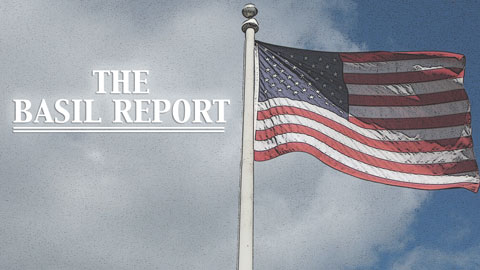With state budgets across the nation hurting, it’s not exactly surprising that some states are coming up with unorthodox solutions to budget gaps. One would hope, however, that these are smart, unorthodox solutions.
The solution offered by Massachusetts House Speaker Robert DeLeo and supported by Governor Deval Patrick is most definitely not.
Under legislation filed by Speaker DeLeo last week, two resort casinos would be built in the state along with 750 slot machines at racetracks. The bill has been approved by the Joint Committee on Economic Development and Emerging Technologies – without a public hearing, interestingly enough – and will be debated by the House in upcoming weeks.
There’s no doubt expanded gaming would help close the budget gap in the short term. Licenses for the two resort casinos would be sold for $100 million a piece, and $15 million at each of the four racing tracks where slots would be built.
But what about the long term?
Casino proponents point to two benefits of the legislation: new jobs and more tax revenue. Let’s put both of these myths to rest right now.
[adrotate group=”2″]
Casinos will not create new consumer demand. They will merely shift demand from other local businesses to the resorts. Money that would otherwise be spent on small businesses would instead be lost to the quick spin of slot machines. Jobs, then, will simply move around as well.
And these aren’t even the “well-paying jobs” that proponents expect. The average pay for a casino worker is less than $26,400, or 120% of the poverty level for a family of four, according to the Bureau of Labor Statistics. Gaming dealers, who make up more than 50% of casinos workers, earn on average $16,310 – far below the federal poverty level of $22,000.
As for tax revenue, the idea that a limited number of casinos can be revenue-positive over the long-term is a pipe dream.
First of all, tax revenue will fall from the businesses that are hurt by competition from casinos. Secondly, casinos will steal revenue from the state lottery. According to United to Stop Slots in Massachusetts (admittedly not a nonpartisan group), casinos could lose the state 10% of its $4 billion lottery enterprise.
Beyond this, that the benefits of increased gambling are wildly exaggerated, this legislation would create a huge new social problem.
Gambling is not healthy. Gambling addictions can tear apart families and ruin lives. According to the Massachusetts Council on Compulsive Gambling, some 250,000 Bay Staters are problem gamblers. With expanded gaming, this number can only go up. Besides the social and emotional cost, this has an economic cost, in the form of increased demand for state rehabilitation services.
Finally, is gambling really how the state wants grow the economy? Gambling is not a growth industry (especially if the number of casinos is limited). The state should not be investing its future in gaming; we should be investing in the industries of the future. The state is already one of the leading biotechnology hubs in the country; investment in renewable energy is rapidly growing.
Does the legislature really want to establish gambling as the hope of Massachusetts?






























